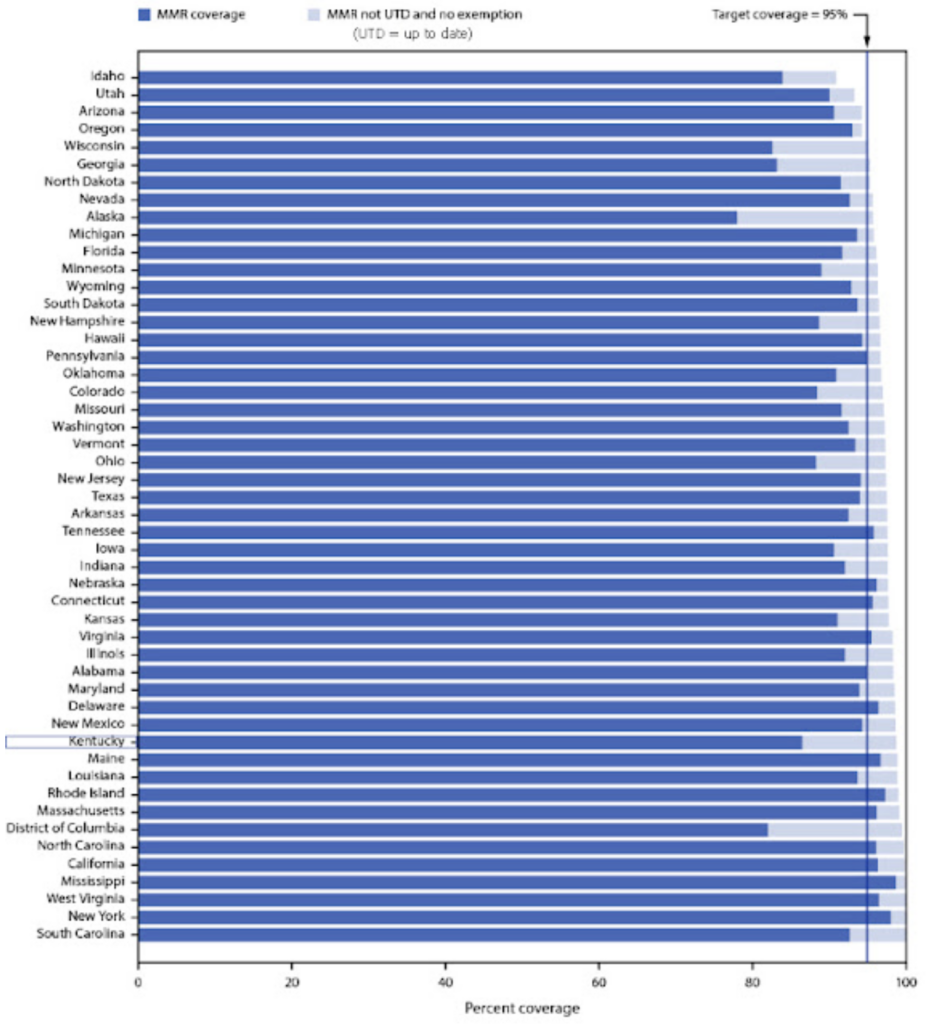Unvaccinated attendee of big revival has state’s third case of measles in 3 months; Ky. ranks very low in measles vaccinations

An unvaccinated Jessamine County resident who attended the large, spontaneous revival at Asbury University has Kentucky’s third reported case of measles in three months, the state Department for Public Health said Friday.
Stack added, “If you may have been exposed at Asbury University’s campus and develop any symptoms, whether previously vaccinated or unvaccinated, please isolate yourself from others and call your medical provider, urgent care, or emergency department to seek testing. Please do not arrive at a health-care facility without advance notice, so that others will not be exposed.”
Measles is one of the most contagious diseases, and spreads through the air. Early symptoms resemble those of many upper-respiratory illnesses – fever, cough, red eyes and runny nose – “and proceed to the characteristic rash three to five days after symptoms begin,” the release said.
The vaccine for measles vaccine is given in combination with those for mumps and rubella (“German measles to children at 12 to 15 months of age. A second dose is usually given at 4 to 6 years old, and is required for admission to school. Two doses of the MMR vaccine are about 97% effective at preventing measles if exposed to the virus, the state says.
The state health department is working with local departments to promote MMR vaccination in communities with low vaccine rates, the release said. Recent data released by the Centers for Disease Control and Prevention shows MMR vaccine coverage among Kentucky kindergarteners is one of the nation’s lowest.
The CDC reports that the rate could be as low as 86.5 percent, which could rank it sixth lowest among the states. The national average is about 93%. Kentucky’s percentage is expressed as “greater than or equal to” because the state counts some or all vaccine doses that are given outside federally recommended age and time intervals, and it does not include vaccinations at certain types of facilities, which could include kindergartens in child-care facilities, online schools, correctional facilities, or military installations.